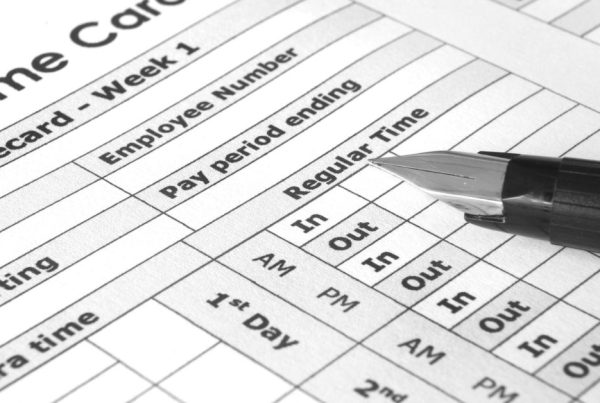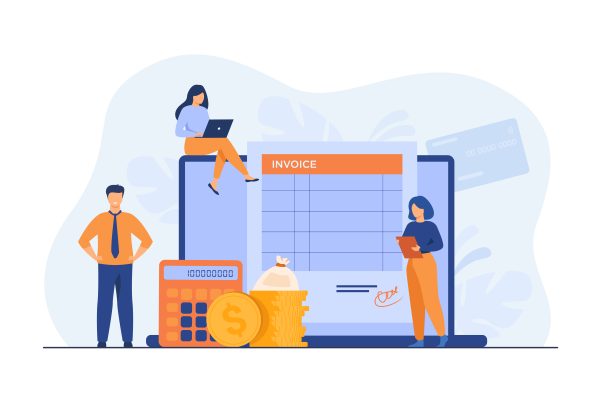
Managing multiple client projects simultaneously is a challenging but essential task for management and strategy consultancies. Effective project management requires strategic prioritization, efficient time management, clear communication, and continuous monitoring to ensure all projects meet their objectives and deadlines. By implementing best practices and leveraging advanced tools, consultancies can streamline their processes, enhance collaboration, and deliver successful outcomes for their clients.
Prioritization and Time Management
Effective prioritization forms the backbone of successful project management. It involves determining the urgency and importance of each project to align them with the company’s strategic goals. Project prioritization allows managers to assess the feasibility, impact, and potential value of projects, which is particularly crucial for larger organizations with numerous simultaneous projects and limited resources (source). Utilizing decision science methods, such as the Analytic Hierarchy Process (AHP), can further refine prioritization decisions by providing a structured framework for evaluating multiple criteria (source).
Creating an effective project timeline is another key step in managing multiple projects. A comprehensive timeline provides a visual representation of the project’s schedule, detailing the sequence and duration of tasks. It not only displays tasks in chronological order but also incorporates critical elements like task dependencies, resource allocation, and milestones (source). This approach ensures that deadlines are met and the team remains unified, working towards common goals (source).
Effective resource allocation is vital for project success, ensuring that the project team has the necessary assets to hit their objectives. This process involves identifying and assigning available resources, which can include team members, budgets, project timelines, equipment, tools, or software (source). A people-centric resource allocation approach, as emphasized by Float, sets projects on the right track from the start and allows for accurate and sustainable allocation of team time (source).
Lastly, utilizing time tracking tools can provide better oversight and improve efficiency in handling multiple projects. Time tracking tools offer a clear picture of how much time is spent on individual tasks and overall projects. This visibility helps assess the accuracy of work estimates and the effectiveness of employees, making it essential for project management (source). Benefits of time tracking include transparency into work processes, increased accountability, and a better understanding of billing and productivity (source).
Incorporating these strategies into project management practices, and using tools like Minute7 for time tracking and expense reporting, can help businesses handle multiple high-stakes projects simultaneously with greater efficiency and effectiveness. Minute7’s seamless integration with QuickBooks and user-friendly mobile app makes it a valuable tool for companies looking to streamline their project management processes.
Effective Communication and Collaboration
Clear and consistent communication is paramount to the success of any project. It prevents misunderstandings, reduces conflicts, and enhances overall project efficiency. Communication in project management includes a variety of interactions, from verbal and written exchanges to non-verbal cues. It involves conveying ideas, sharing progress updates, addressing challenges, and seeking feedback from team members, stakeholders, and clients (source). Ensuring everyone is on the same page enables seamless coordination and helps prevent misunderstandings that can lead to project delays or failures.
Regularly scheduled meetings and updates are essential for managing multiple projects. These meetings provide an opportunity to check in on progress, realign priorities, and address any challenges that might arise. When overseeing multiple projects, it’s crucial to have a centralized location to house all project information, manage and communicate expectations clearly, and balance workloads and timelines effectively (source, source).
Utilizing collaboration tools and platforms is vital for efficient project management. These tools facilitate real-time communication among project stakeholders and include features such as file sharing, instant messaging, task management, team calendars, Gantt charts, and more (source). Some of the best project management collaboration tools include Monday.com, Hub Planner, Basecamp, Planable, ClickUp, and ProofHub. These tools help in defining and assigning tasks, discussing work progress, managing assets, providing a system for reviews and approvals, and automating workflows (source).
Transparency and accountability are also crucial components of effective project management. Transparency begins with clear goals and objectives, such as defining a project’s scope, deliverables, milestones, and metrics. This clarity helps team members align their efforts and fosters a sense of ownership, which in turn ensures projects are completed on time. Accountability can be maintained by defining roles and responsibilities, providing communication channels, monitoring progress, documenting and reporting activities, building trust by encouraging feedback, and addressing issues and conflicts early on (source). Transparency promotes better performance and accountability among team members by making clear what is expected of each individual and how their actions impact the work of their colleagues (source).
Minute7, with its robust time tracking and expense reporting features, can significantly aid in establishing clear communication channels, scheduling regular updates, utilizing collaboration tools, and ensuring transparency and accountability in project management. Its features, such as timesheets, secure data storage, reporting, mobile app, and receipt attachments, make it easier for management and strategy consultants to manage multiple client projects simultaneously.
Monitoring and Adjusting Project Plans
Effectively monitoring and adjusting project plans is crucial for ensuring that multiple client projects stay on track and meet their objectives. This involves setting clear milestones and Key Performance Indicators (KPIs), conducting regular progress reviews, managing risks with contingency plans, and leveraging analytics for data-driven decisions.
Setting Milestones and Key Performance Indicators (KPIs)
Milestones serve as significant checkpoints within a project, marking the completion of major phases or deliverables. They help project managers and teams stay focused and track progress systematically. By breaking down the project into smaller units, milestones provide clear direction and help in recognizing accomplishments along the way (source).
Key Performance Indicators (KPIs) are essential metrics that measure the success of a project in achieving its goals. KPIs provide quantifiable data that can highlight areas of success and those needing improvement. They act as early warning signals, helping to identify potential problems before they become critical issues (source).
Regular Progress Reviews and Adjustments
Regular progress reviews are vital for maintaining project alignment with initial objectives. Through Project Performance Reviews (PPRs), teams can assess progress, identify obstacles, and make necessary adjustments. These reviews ensure that the project remains on track and that any deviations from the plan are promptly addressed (source).
Progress reports provide a detailed account of the work completed, work pending, and challenges encountered. They offer insights into the project’s current status and facilitate better forecasting of the completion timeline. Regular progress reporting helps in maintaining transparency and enabling timely interventions to keep the project on course (source).
Risk Management and Contingency Planning
Risk management involves identifying potential risks and developing strategies to mitigate them. Contingency planning is an integral part of this process, providing a predefined course of action if a risk materializes. Having a “Plan B” ensures that projects can continue with minimal disruption, reducing the likelihood of delays and budget overruns (source).
Leveraging Analytics for Data-Driven Decisions
Using analytics in project management allows for more informed decision-making. Data-driven project management leverages historical data and predictive models to identify risks, optimize resource allocation, and streamline workflows. Analytics can provide valuable insights into project performance, helping managers make data-backed decisions that enhance efficiency and effectiveness (source).
By incorporating these strategies, management and strategy consultancies can more effectively oversee multiple client projects. Utilizing tools like Minute7 for time tracking and expense reporting can further enhance the monitoring and adjustment of project plans. Minute7’s features, such as detailed timesheets, secure data storage, and robust reporting capabilities, empower teams to maintain control over their projects and drive successful outcomes.
Enhancing Efficiency with Minute7
Managing multiple client projects simultaneously is no small feat, but with the right strategies and tools, it becomes a manageable endeavor. Effective prioritization, communication, and continuous monitoring are crucial for ensuring that all projects stay on track and meet their objectives. By setting clear milestones and KPIs, conducting regular progress reviews, managing risks, and leveraging data analytics, management and strategy consultancies can streamline their project management processes and improve overall project outcomes.
Minute7 plays a pivotal role in enhancing these strategies by offering robust time tracking and expense reporting features that integrate seamlessly with QuickBooks. With Minute7, companies can efficiently track time and expenses across various projects, ensuring accurate billing, reporting, and payroll management. The platform’s user-friendly mobile app and secure data storage capabilities make it accessible and convenient for teams of all sizes, enabling them to stay organized and focused on delivering successful project outcomes.
By leveraging Minute7, management and strategy consultancies can simplify their project management processes, improve transparency and accountability, and ultimately drive better results for their clients. Whether it’s through detailed timesheets, expense tracking, or comprehensive reporting, Minute7 provides the tools needed to manage multiple high-stakes projects with ease and efficiency.



